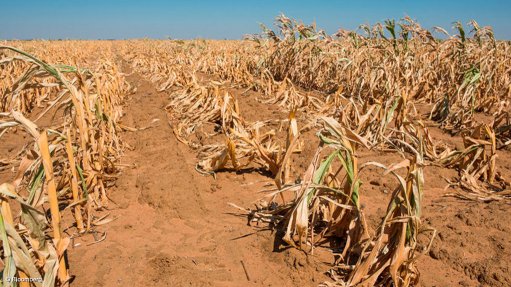We all stand together
Win or lose, sink or swim; One thing is certain – we’ll never give in; Side by side, hand in hand; We all stand together.”
The above are the opening lyrics of Beatle Paul McCarthy’s 1983 song, titled We All Stand Together. Even though it was considered a “relative success”, it has been cited by some as marking the beginning of the decline of McCartney’s songwriting talent. (The song was written and recorded for an animated children’s film, Rupert and the Frog Song. Yes, Rupert Bear, “a little bear, like you’ve never seen before . . .”)
I was reminded of the decline in McCarthy’s songwriting prowess by calls to address the decline of the South African economy, which is so blatantly obvious for anyone to see.
What a week South Africa had recently! Two international rating agencies postponed the inevitable – the relegation of South Africa’s credit rating to ‘junk’ status – and it was announced that South Africa’s gross domestic product (GDP) contracted during the first quarter of this year. Fitch Ratings affirmed South Africa’s credit rating at BBB–, its lowest investment-grade level, with a stable outlook. As my father used to say, “every silver lining has a dark cloud”. S&P Global Ratings also affirmed South Africa’s credit rating at BBB–, its lowest investment-grade level, with a negative outlook. S&P warned that South Africa’s credit rating could be relegated to ‘junk’ status if “the economy doesn’t improve or if institutions are weakened by political interference”.
If this is not frightening and sobering enough, then consider this: the first-quarter GDP contraction exceeded the expectations of ten economists polled by I-Net Bridge. The economists’ collective consensus forecast was a 0.4% contraction, with the most pessimistic two forecasting a 0.7% contraction. In another poll, undertaken by Bloomberg, the consensus forecast of 21 economists was a 0.1% contraction, which was significantly more optimistic than the I-Net Bridge forecast. The first-quarter GDP recorded a 1.2% contraction. How do economists get it this wrong?
To contextualise, the 1.2% contraction is a figure calculated by Statistics South Africa (Stats SA). It is a quarter-on-quarter (seasonally adjusted and annualised) figure – in other words, it is a comparison of the fourth quarter of 2015 and the first quarter of 2016. Stats SA also published a year-on-year figure – a comparion of the first quarter of 2015 and the first quarter of 2016 – which was a 0.2% contraction.
Now, bear in mind that two consecutive quarters of GDP contraction is considered a recession. So, for South Africa to go into recession, according to this definition, the second-quarter contraction has to be dramatically worse than the first quarter’s. This seems to be highly unlikely, so a ‘recession’ will, in all likelihood, be averted for the second quarter. (As a matter of interest, in the past, Stats SA and the South African Reserve Bank (SARB) collectively prepared the GDP data; however, as of this year, Stats SA does this on its own, having taken over the publication of expenditure-side GDP data from the SARB.)
Although South Africa may not be in recession in accordance with economists’ definition of the term, many commentators believe that South Africa is, technically, already in recession, owing largely to the country’s poor economic growth. In January, the International Monetary Fund slashed South Africa’s economic growth prospects from 1.3% to 0.7%. Then, in February, the World Bank did much the same, slashing South Africa’s economic growth prospects from 1.4% to 0.8%. The SARB slashed its own growth prospects to 0.6% from 0.9%.
For the South African government to achieve its National Development Plan (NDP) targets, economic growth of 7.2% will be required from 2018, which will reduce the unemployment rate to 6% by 2030. The unemployment rate was 26.7% for the first quarter of 2016, the highest level in at least eight years. This equates to about R5.5-million unemployed people.
Against this backdrop, there have been mounting calls from various individuals for South Africans to work together. One such person is the spokesperson of the Congress of South African Trade Unions (Cosatu), who said: “Working together is possible, even in a tight timeframe, as long as parties are prepared not to push their agendas as the only answer.” The Cosatu spokesperson added: “We want a situation where all the parties are reconsidering their positions and find a uniquely South African development model. We said, as a country, we are at a crossroads . . . Everyone – government, business, labour and civil society – understands that we should come together and find a developmental programme that will help the nation.”
But this call is not new; on February 22, 2012, according to the South African Broadcasting Corporation, South Africa’s current Finance Minister, Pravin Gordhan, when he delivered his 2012/13 Budget Vote speech, urged all “the role-players in the South African economy, not only government, business or labour unions, but everyone in this country, to work together in order to grow the economy”. This message was delivered nearly 52 months ago.
In the words of Ferris Bueller: “Yep. I’ve said it before and I’ll say it again.” This is reminiscent of the 1981 song of the band Talk Talk, which has the same titled track and whose chorus is: “Talk, talk, talk, talk; All you do to me is talk, talk; Talk, talk, talk, talk; All you do to me is talk, talk.”
But it is not only the South African economy that is in decline; the country’s major sporting codes are also in decline. Not so long ago, a 14-man Ireland rugby team (for close to 60 minutes in an 80-minute game, and at one stage fielding only 13 men) beat South Africa’s national 15-man rugby side 26–20 for the first time ever on South African soil. Heaven forbid what pain the British and Irish Lions would inflict on South African supporters. Then there is the memory that has yet to fade – South Africa being beaten 34–32 by Japan on September 19, 2015, in the teams’ opening World Cup pool match. And the national soccer team – a past African champion – was unable to qualify for next year’s Africa Cup of Nations final. The national cricket team, too, has its own challenges.
It seems that the only way to ensure the participation of South African national teams in future international major sporting events would be for South Africa to be the host – that is, if Sports Minister Fikile Mbalula is willing.
Comments
Press Office
Announcements
What's On
Subscribe to improve your user experience...
Option 1 (equivalent of R125 a month):
Receive a weekly copy of Creamer Media's Engineering News & Mining Weekly magazine
(print copy for those in South Africa and e-magazine for those outside of South Africa)
Receive daily email newsletters
Access to full search results
Access archive of magazine back copies
Access to Projects in Progress
Access to ONE Research Report of your choice in PDF format
Option 2 (equivalent of R375 a month):
All benefits from Option 1
PLUS
Access to Creamer Media's Research Channel Africa for ALL Research Reports, in PDF format, on various industrial and mining sectors
including Electricity; Water; Energy Transition; Hydrogen; Roads, Rail and Ports; Coal; Gold; Platinum; Battery Metals; etc.
Already a subscriber?
Forgotten your password?
Receive weekly copy of Creamer Media's Engineering News & Mining Weekly magazine (print copy for those in South Africa and e-magazine for those outside of South Africa)
➕
Recieve daily email newsletters
➕
Access to full search results
➕
Access archive of magazine back copies
➕
Access to Projects in Progress
➕
Access to ONE Research Report of your choice in PDF format
RESEARCH CHANNEL AFRICA
R4500 (equivalent of R375 a month)
SUBSCRIBEAll benefits from Option 1
➕
Access to Creamer Media's Research Channel Africa for ALL Research Reports on various industrial and mining sectors, in PDF format, including on:
Electricity
➕
Water
➕
Energy Transition
➕
Hydrogen
➕
Roads, Rail and Ports
➕
Coal
➕
Gold
➕
Platinum
➕
Battery Metals
➕
etc.
Receive all benefits from Option 1 or Option 2 delivered to numerous people at your company
➕
Multiple User names and Passwords for simultaneous log-ins
➕
Intranet integration access to all in your organisation

















